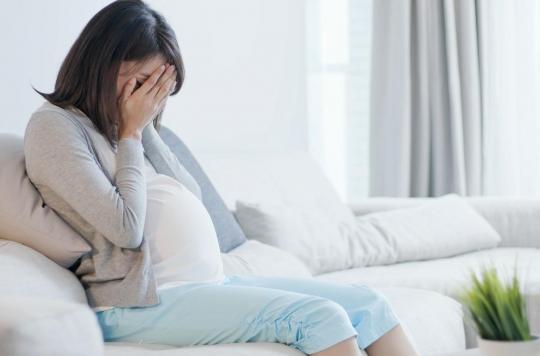Women stressed during pregnancy are less likely to give birth to boys, according to a new study. According to the researchers, social support would be a key factor in the management of anxiety in a pregnant woman.

Everyone knows that stress is bad for your health, it is all the more dangerous for a pregnant woman. Indeed, his anxiety can affect the development of the fetus, childbirth and the health of the baby even after birth. In particular, stress during pregnancy has been associated with an increased risk of preterm birth, a phenomenon linked to higher rates of infant mortality and physical and mental disorders, such as attention deficit hyperactivity and anxiety disorder in children. . In a new study published on October 14 in the journal PNAS, Proceedings of the National Academy of Sciences,American researchers have identified the types of physical and psychological stress with the greatest consequences. According to their research, it seems that less stressed women are more likely to give birth to boys.
“The uterus is an influential first home, as important as the one in which a child is raised, if not more so,” explains Catherine Monk, professor of medical psychology who conducted the study. By subjecting 187 healthy pregnant women, aged 18 to 45, to questionnaires and daily physical assessments, she and her colleagues examined 27 indicators of psychosocial and physical stress.
They were able to find that 17% of the women were psychologically stressed and had clinically significant high levels of depression, anxiety and perceived stress. In addition, 16% were physically stressed: their daily blood pressure was relatively higher and their caloric intake higher than that of pregnant women who were doing well (nearly 67%). From these results, the researchers were able to observe that pregnant women suffering from physical and psychological stress were less likely to have a boy.
Social support that makes the difference
“Other researchers have seen this trend after social upheavals, such as the September 11, 2001 terrorist attacks in New York, after which the relative number of male births declined,” says Catherine Monk.
Another interesting observation: physically stressed mothers were more likely to give birth prematurely. In them, the fetus had a reduced heart-to-movement heart rate ratio, an indicator of slower development of the central nervous system, compared to unstressed mothers. Finally, psychologically stressed mothers had more birth complications than those who were physically stressed.
The researchers found that what most differentiated the three groups of women was the level of social support they received from friends and family. Thus, the more a woman is surrounded, the more likely she is to give birth to a boy. When social support is greater, the effects of stress on preterm birth disappear, the study notes.
Stress can affect the mother’s immune system
“Screening for depression and anxiety is becoming a progressive part of prenatal practice,” says Monk. “But although our study was small, the results suggest that improving social support is potentially an effective target for clinical intervention.”
However, the study did not look at the mechanisms at work for the mental state of a mother to affect the fetus. “We know from animal studies that exposure to high levels of stress can increase levels of stress hormones like cortisol in the womb, which in turn can affect the fetus” , notes Monk. “Stress can also affect the mother’s immune system, leading to changes that impair neurological and behavioral development in the fetus. What is clear from our study is that maternal mental health is important, not just for the mother , but also for her future child”, she concludes.
Impact on baby’s growth
Two years ago, it was proven in particular that the stress of pregnant women had an influence on the growth of their child. In the study, in women stressed at the end of the gestation period, fetal growth was slower in the womb and during infancy. Once nutritional independence is achieved, on the other hand, the baby no longer depends on the mother in the same way and its growth seems to resume a normal rhythm.
In women stressed at the beginning of their pregnancy, on the other hand, the fetus will react differently to compensate for a reduced life expectancy: the baby grows faster in the uterus as well as during early childhood.
According to theHealth Insurance, anxiety disorders affect twice as many women as men. In total, between 15 and 20% of the population would be affected at least once in their life.

.
















